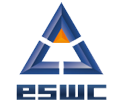Panel
Big Data & Semantic Technology
The traditional world of relational databases and enterprise data warehouses is being challenged by growth in data volumes, the rise of unstructured and semi-structured data, and the desire to extract more valuable business insights in order to remain competitive: we are entering the world of 'big data.' Views differ as to what constitutes 'big data' but a pragmatic definition is 'when the size of the data itself becomes part of the IT challenge.'
Scale-out, commodity hardware-based solutions based on the map-reduce programming model for parallel processing on large hardware are emerging to address these Big Data requirements that have challenged traditional technologies. Simultaneously, interest is growing in Linked Data and Open Data and governments and other organisations around the world are publishing data on the web, offering public access to huge data volumes in an interoperable and extensible way using semantic technology open standards.
The question naturally arises as to how these two emerging initiatives relate and this is the subject of the panel. Among the issues for discussion include:
- Linked Data and Big Data - how do they fit?
- Is reasoning over massive volumes of heterogeneous data feasible or desirable?
- Is consistency over massive volumes of heterogeneous data feasible or desirable?
- What representations are suitable for big data management?
- How can semantic technology be used in real-time environments with large volume data feeds?
- How big is big to qualify as Big Data and do traditional data mining techniques remain appropriate?
- What value can semantic technology bring to the concerns of Big Data?
- Is a new Theory of Data required and how can semantic technology contribute?
We have assembled a panel from a variety of backgrounds with wide-ranging expertise for what should be a lively and informative debate!
Panelists:
- Chair: John Davies, British Telecom
- Marko Grobelnik, Josef Stefan Institute
- Andreas Harth, Karlsruhe Insitute of Technology
- Marta Nagy-Rothengass, European Commission
- Yves Raimond, BBC















